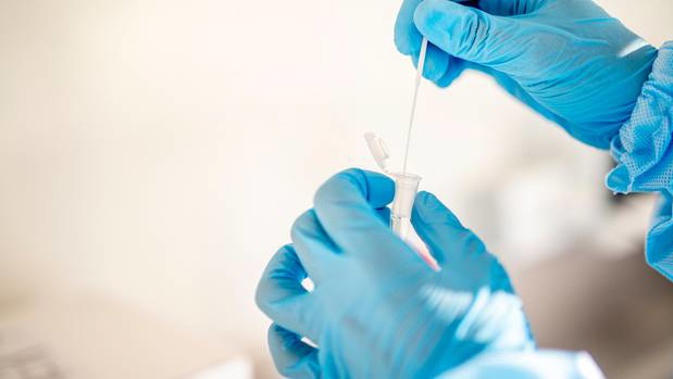
New Zealanders are reportedly being offered fake negative Covid-19 test result certificates in a bid to comply with the Government's pre-departure testing regime.
And that regime is being questioned by experts, who agree that it's not working as well as it should be.
Director-general of health Dr Ashley Bloomfield said officials are looking into the system, as more and more people test positive for Covid-19 in their first day in managed isolation, despite having produced a negative result overseas.
Although an overhaul of the system may prove difficult, as the system relies on the Covid-19 testing abilities of other countries, it is "the single most important action for New Zealand," according to one expert.
This comes as University of Auckland microbiologist Dr Siouxsie Wiles has revealed she has been made aware of someone who was offered a fake negative pre-departure test certificate for a fee.
This has led her and epidemiologist Dr Michael Baker to raise questions about the effectiveness of the pre-departure testing regime.
The pre-departure rules, which came into effect in late January, aimed to "further protect New Zealand from Covid-19," Covid-19 Response Minister Chris Hipkins said at the time.
The rules mean a returnee must produce a negative Covid-19 test certificate in order to come to New Zealand.
They were announced at the same time as the expansion of the managed isolation testing regime, where almost all returnees would receive a day 0/1 test.
According to data from the Ministry of Health, a significant number of people who returned a positive Covid-19 result when they returned to New Zealand did so on day 0/1.
According to Wiles, this data tells two stories.
The first is the Government was right to introduce day 0/1 testing rules.
"It's clear from the number of positive day 0/1 tests we are getting that their introduction was a good idea," Wiles said.
But the data also shows that the pre-departure testing regime is not working as well as had been intended.
"For those who test negative it just tells us they were negative at the time of testing," Wiles said.
"That doesn't mean they weren't incubating the virus or won't become infected in the time between their test and arriving in New Zealand."
And there is another issue: fake test results.
"I have no doubt that unscrupulous people will also be offering fake negative pre-departure test certificates for a fee.
"Someone got in touch with me to tell me a relative of theirs had been offered one in France but declined."
Baker said the Government needed to do more work on improving the pre-departure systems, given how critical it is to New Zealand's Covid-19 defence.
"Finding ways of managing this risk is possibly the single most important action for New Zealand, in terms of Covid management."
There are a number of ways this could be done, he said.
For example, would-be returnees could be required to sign a declaration that said they have self-isolated for a week before their departure and that they have been regularly wearing a mask.
When announcing the pre-departure testing policy, Hipkins said: "It's important to remember that this is not going to stop Covid-19 coming into New Zealand.
"We are still going to see people showing up at the border who subsequently test positive – our goal is to reduce the number of people who are arriving with Covid-19."
Despite this, Bloomfield told reporters on Friday that the Government was looking into the pre-departure testing regime.
Although there have been "very few" people who have returned to New Zealand without evidence of a pre-departure test, he said the nature and the reliability of the testing varies around the world.
But that is something that had always been assumed and, therefore, that's why the day 0/1 testing rules were put in place.
He said the Government was not specifically looking at any one country's pre-departure testing regime as officials don't have all the information about the different testing approaches.
"But we do take, on face value, the valid certification of the fact that someone's had a pre-departure test, which does require quite specific information."
The testing data shows some countries clearly have much worse pre-departure testing regimes than others.
India, for example, has a particularly bad track record with roughly 40 people testing positive for Covid-19 on day 0/1 upon their return to New Zealand since the pre-departure rules came into effect.
That number is even higher when day 3 tests are taken into account.
Unfortunately, there appears to be little New Zealand can do about the flawed pre-departure system, Wiles said.
"In an ideal world, we'd have oversight of where people get tested so we would know that the results were reliable, and we'd have facilities for isolating people before they boarded their flight to minimise the chances of getting infected in transit."
But that is effectively moving the MIQ system offshore, Wiles said.
"We know how hard it is to run a system here in New Zealand so the idea we could outsource that overseas is completely impractical."
Take your Radio, Podcasts and Music with you









